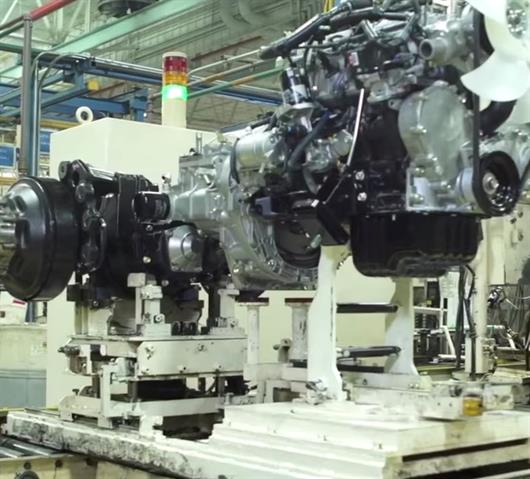 TMH anticipates lengthy delays in its engine certification |
By Allan LeibowitzToyota Materials Handling has confirmed that shipment of some models of engine-powered forklifts manufactured in Columbus have been suspended due to delays in obtaining US engine emissions certification.
A spokesperson tells
Forkliftaction News the production suspension is limited to LPG- and LPG/gasoline-powered models. "Toyota Material Handling will continue to manufacture electric, diesel and heavy-duty forklifts for the North American market," she explains.
At the heart of the disruption is a requirement for an annual emissions certification from the Environmental Protection Agency (EPA) and CARB. "We anticipate lengthy delays in certification, which is why we made the announcement involving our production suspension. We are working diligently to resolve this issue and provide alternative solutions wherever possible," the spokesperson says.
The certification issue comes amid the manufacturer's claims of environmental leadership. The TMH website boasts that "when it comes to the quality of the air we breathe, no other forklift manufacturer in the world is more devoted than Toyota".
"Our new diesel-powered forklift models meet the EPA Tier IV Final regulations and the new gasoline models meet the EPA TIER II regulations to provide the cleanest burning engines Toyota has provided in these high-capacity forklifts," according to the site.
It is understood that prior to the suspension, around 2,000 units were being produced each week in Columbus, many of which are stockpiled while efforts towards certification continue.
The company confirms that it still has "some units with engines that have not yet been certified".
"Dealers are working with their customers to leverage lease extensions, stock inventory, used and rental, as well as finding electric and diesel alternatives where appropriate," the spokesperson adds.
TMH says it is "working diligently to resolve this issue and provide alternative solutions wherever possible".
"We will restart production once certification is obtained or alternative certified engines can be sourced," the company says.
It is unclear if the current production suspension will lead to production staff being stood down, especially if, as feared, the certification takes some time. However, observers point out that the affected models represent no more than 30% of Toyota's sales in North America.
The production halt at TMH is not linked to the crisis associated with its unrelated automotive namesakes. In January, the EPA and US Department of Justice filed and simultaneously settled a civil lawsuit against Toyota Motor Corporation, Toyota Motor North America Inc., Toyota Motor Sales U.S.A. Inc., and Toyota Motor Engineering & Manufacturing North America Inc. for "systematic, longstanding violations of Clean Air Act emission-related defect reporting requirements, which require manufacturers to report potential defects and recalls affecting vehicle components designed to control emissions".
Toyota's fine of USD180 million is the largest civil penalty for violation of EPA's emission-reporting requirements.
The violations are being likened to Volkswagen's 'Dieselgate' scandal in 2015, when the EPA acted against the German carmaker for violations of the Clean Air Act.
An EPA official confirmed to
Forkliftaction News that the Toyota case "did not concern forklifts or other corporate entities". This was reiterated by TMH which stresses that it is a wholly owned subsidiary of Toyota Industries Corporation.